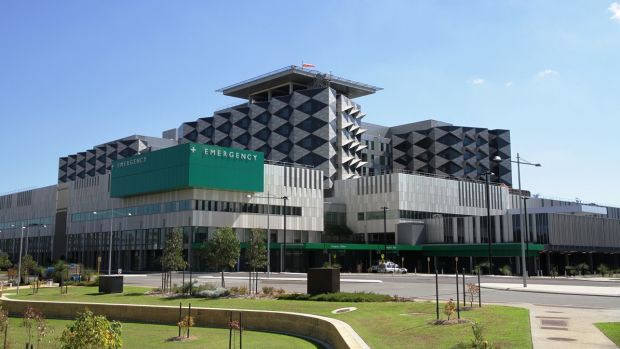
An investigation is reportedly underway after a suspected medication mix-up at Fiona Stanley Hospital led to a man’s death on Wednesday.
The West Australian reported on Saturday that a 60-year-old man died following complications from suffering low blood pressure.
His doctors reportedly prescribed a powerful drug called noradrenaline, which is commonly used to treat low blood pressure but can be dangerous if not administered correctly.
It is believed a nurse accidentally gave the man a far higher dose than had been prescribed, causing his blood pressure to skyrocket before he suffered a brain aneurysm and died.

The incident is being investigated by WA Police and the Health Department.
WA Labor health spokesman Roger Cook called for the results of any inquiries to be made public.
“We all know that resourcing issues at Fiona Stanley Hospital are having a central impact upon the moral of the staff and the work pressure they are working under,” he said.
“We want to know if that was a contributing factor to the overall issues which led to this very sad and tragic event.”
Head of South Metropolitan Health Service Robyn Lawrence said, however, that the patient was attended to by a dedicated nurse while in intensive care.
“The Intensive Care Unit at the time was staffed appropriately and patients in the Intensive Care Unit are nursed one-to-one, and this patient was nursed one-to-one at the time,” she said.
Ms Lawrence said hospital staff involved in the incident had been struggling to cope.
“Whilst our sympathies are obviously with the family, the staff are finding this very challenging and are very, very distressed,” she said.
“All clinical incidents are reviewed, and this [incident] would be what we would call serious clinical incident and will undergo a full investigation.”
It is the second death caused by a suspected medication bungle at Fiona Stanley Hospital.
Jared Olsen, 41, died in March 2015 after being given the wrong drug while being treated for inflammatory bowel disease a month earlier.
Mr Olsen went to hospital with stomach pains that were suspected to be caused by Crohn’s disease.
He was prescribed mercaptopurine – a strong drug usually used to treat leukaemia and sometimes Crohn’s.
He was also tested to see if he had the enzyme TPMT, which is needed to prevent the potentially life-threatening side effects of the drug.
But Mr Olsen’s father Phillip said the results of the test were never followed up and he found his son weeks later collapsed in the shower in a pool of his own blood and faeces.
A coronial inquest into his death supported Phillip’s comments that the abnormal test result of Mr Olsen’s TPMT activity was not brought to the attention of his GP.
Mr Olsen was rushed to hospital but died on March 5 from suspected organ failure.
